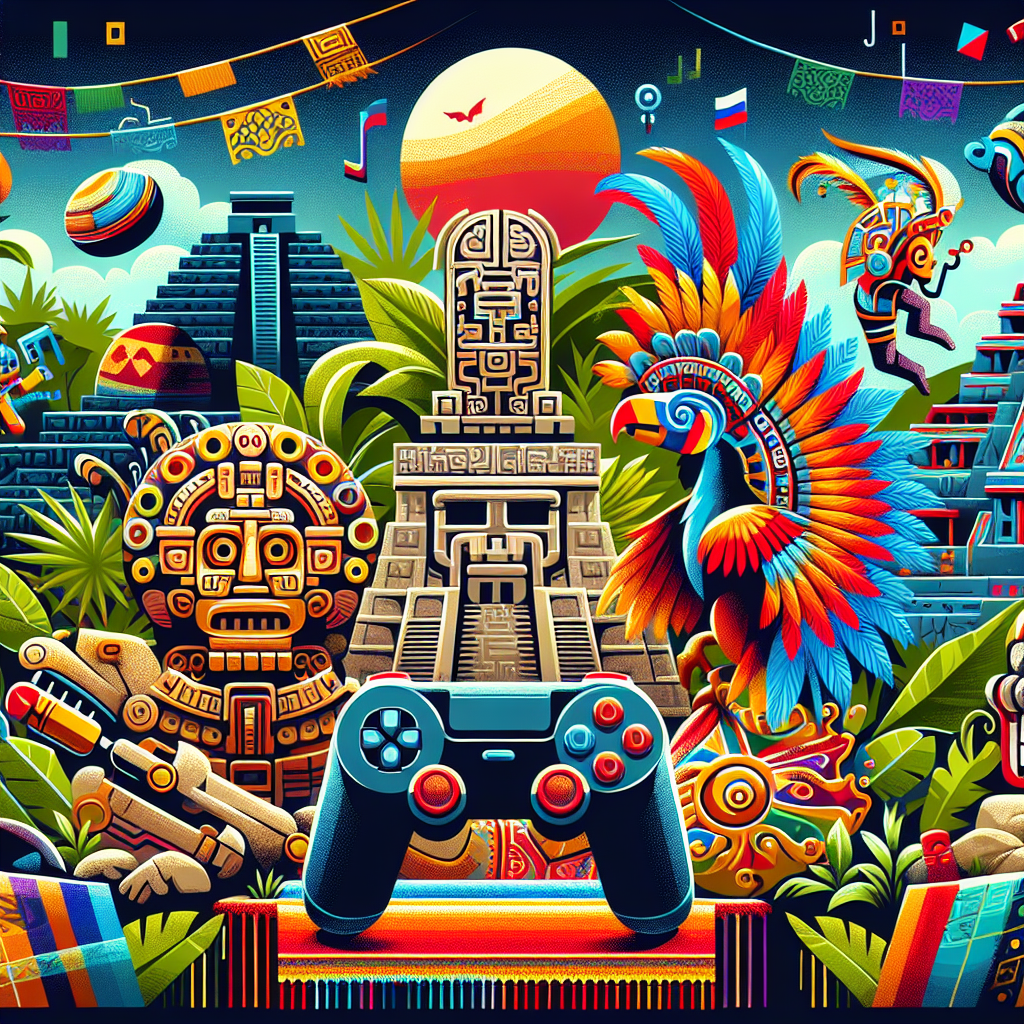Beyond Borders: The Top Games That Define Latin American Culture
As the world grows increasingly interconnected, the cultural landscapes of various regions continue to blend and influence one another. Latin America—a vibrant tapestry of traditions, stories, and historical experiences—has produced an array of video games that resonate with its unique cultural identity. These games not only entertain but also serve as a medium to convey stories, traditions, and values, weaving the threads of community and heritage into the fabric of interactive entertainment. Here’s a look at some of the top games that define Latin American culture, celebrating the region’s creativity and rich history.
1. Guacamelee! (2013)
Developed by the Canadian studio DrinkBox Studios, Guacamelee! is a Metroidvania-style platformer deeply influenced by Mexican culture and folklore. Players assume the role of Juan Aguacate, a humble agave farmer who transforms into a Luchador to rescue El Presidente’s daughter while navigating a world vibrant with colorful visuals inspired by traditional Mexican art.
The game features day-of-the-dead aesthetics, various references to Mexican culture, and an inventive mechanic of shifting between the living and dead worlds, reflecting the cultural significance of life and death in Mexican beliefs. Guacamelee! not only showcases the exuberance of Luchador wrestling but also celebrates the charm and vitality of Mexican heritage.
2. Mundos, Un Mapa (2021)
Mundos, Un Mapa, created by the Argentine studio El Hijo del Remo, is an immersive educational game designed to explore the diverse cultures and ecosystems of Latin America through a map-inspired journey. Players engage with different regions, each offering unique challenges and narratives that delve into the stories of indigenous peoples, pertaining to both ecology and identity.
This game stands out because it emphasizes the importance of cultural preservation, encouraging players to learn about and appreciate the various Latin American identities and their environments. Its educational aspect provides a more profound understanding of the issues facing these cultures in today’s globalized world.
3. Lands of Lore: The Throne of Chaos (1997)
Although not exclusively Latin American, the game’s strong narrative elements and character depth resonate with story-telling traditions found throughout the region. The legacy of storytelling in Latin America extends back centuries, and Lands of Lore used narrative-driven gameplay to create an imaginative world that echoes the rich oral traditions characteristic of Latin cultures.
It juxtaposes age-old myths and legends, enabling players to engage in the storytelling aspect that many Latin American cultures hold dear, exemplifying the region’s ability to adapt global gaming trends into its rich tradition of mythical storytelling.
4. Chicory: A Colorful Tale (2021)
While Chicory is created by a Canadian developer, the game’s core themes translate well with the sentiments deeply rooted in Latin American art and community. The game invites players to explore creativity by painting a black-and-white world, echoing the significance of art in cultural expression, prevalent in Latin American societies.
From vibrant street murals to traditional crafts, art is a vital element of Latin America’s cultural identity, and Chicory uses this concept to foster a sense of belonging and emotional connection, encouraging players to express themselves while collaboratively rallying against the grey mundanity of life.
5. Maya the Bee: The Ants & The Grasshoppers (2005)
This adventurous platform game is inspired by the beloved children’s series that has cultural roots in Latin America. It allows players to explore themes of friendship, teamwork, and adventure through the eyes of Maya. Through its engaging storylines and colorful animations, the game captures the whimsical spirit found in many Latin American tales, illustrating the softer, family-oriented side of the region’s cultural identity.
The game reflects the social dynamics seen in many Latin American communities, prioritizing cooperation and collaboration in achieving common goals, while also underscoring the richness of biodiversity present in the region.
6. Endless Summer (2020)
Developed by Brazilian studio Unbound Creation, Endless Summer is a narrative-driven game that intertwines the themes of love, self-discovery, and the complexities of adolescence with the backdrop of Brazil’s stunning landscapes. By exploring local cultures, music, and traditions, players gain insight into the rich tapestries that make up Brazilian society, all while navigating personal growth and relationships.
The gameplay encapsulates the youthful spirit present in many Latin communities and addresses generational conversations about cultural expectations and personal aspirations, thus creating a tangible connection with players both locally and globally.
Conclusion
The video games mentioned above represent more than just entertainment; they serve as cultural artifacts that reflect the values, traditions, and narratives of Latin America. As the gaming industry continues to expand, these titles create a significant space for Latino stories and heritage, speaking to both local and global audiences. By embracing the fullness of Latin American culture, these games help foster a deeper understanding and appreciation for the region’s artistic and cultural diversity. As gaming technology advances, the future promises even greater avenues for exploring the rich complexities of Latin American narratives, ensuring that the region’s culture continues to resonate and inspire in the interactive medium.




